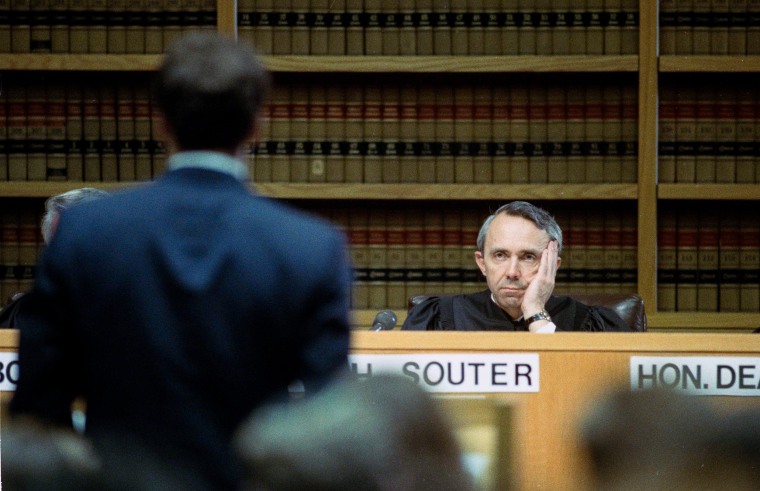David Souter: The Life and Legacy of a Pivotal Supreme Court Justice
David Souter, a name that resonated through the halls of the U.S. Supreme Court for nearly two decades, was a figure who shaped the direction of American law in unexpected ways. His journey from New Hampshire to the highest court in the nation offers insights into judicial independence, personal integrity, and the shifting landscape of the Supreme Court.

David Souter during his tenure as Supreme Court Justice
Early Life and Rise to the Supreme Court
Born in Massachusetts, David Souter pursued both undergraduate and law degrees at Harvard and was later a Rhodes Scholar at Oxford. He began his career practicing law in New Hampshire, eventually becoming the state's attorney general, then a state judge, and finally serving briefly as a federal appeals court judge. This steady climb culminated in his 1990 nomination to the U.S. Supreme Court by President George H.W. Bush. The Senate overwhelmingly confirmed Souter, little-known outside New England, in a 90-9 vote. Read more on his career path in the NBC News obituary.
Judicial Philosophy and Critical Decisions
David Souter's judicial tenure defied many early expectations. Though initially regarded as a conservative-leaning nominee, he soon found his place as a moderate, and eventually, a reliable liberal voice. This transformation became clear during landmark cases such as Planned Parenthood v. Casey. In that case, he joined Justices O'Connor and Kennedy to uphold essential abortion rights, much to the surprise and disappointment of conservative proponents. This pivotal move highlighted his commitment to interpreting the Constitution above political ideology.
Souter also dissented in the controversial 2000 Bush v. Gore decision, reflecting his independent stance on politically charged issues. His opinions consistently showed a deep respect for precedent and thoughtful deliberation of the law.
Life Beyond the Bench
Known for his reserved lifestyle, David Souter eschewed the spotlight of Washington, preferring simplicity and the comfort of his New Hampshire home. Colleagues and legal scholars admired his humility, wit, and dedication to public service. Souter chose to retire at the age of 69, allowing President Barack Obama to appoint Sonia Sotomayor as his successor. His post-Supreme Court years were defined by a continued engagement with legal education and a return to the life he loved in New England.
Legacy and Impact
David Souter’s legacy lies not just in the decisions he helped shape, but in the lessons his career imparts about judicial independence and the unpredictability of Supreme Court appointments. His path has influenced how presidents and legal advocates approach nominations, with terms like "No more Souters" becoming part of political parlance. For further reading, see the in-depth analysis from The New York Times.
Remembering David Souter
Justice David Souter passed away at the age of 85, leaving behind an indelible mark on American jurisprudence and a model of integrity for future generations. His story is a compelling reminder that the arc of the law—and those entrusted to interpret it—can surprise and inspire. See the NBC News remembrance for more on his influence.
David Souter's life and career remain a powerful testament to the importance of independence and humility in public service. As the nation reflects on his contributions, his unique journey continues to influence how Americans view the role of the Supreme Court and those who serve within it.